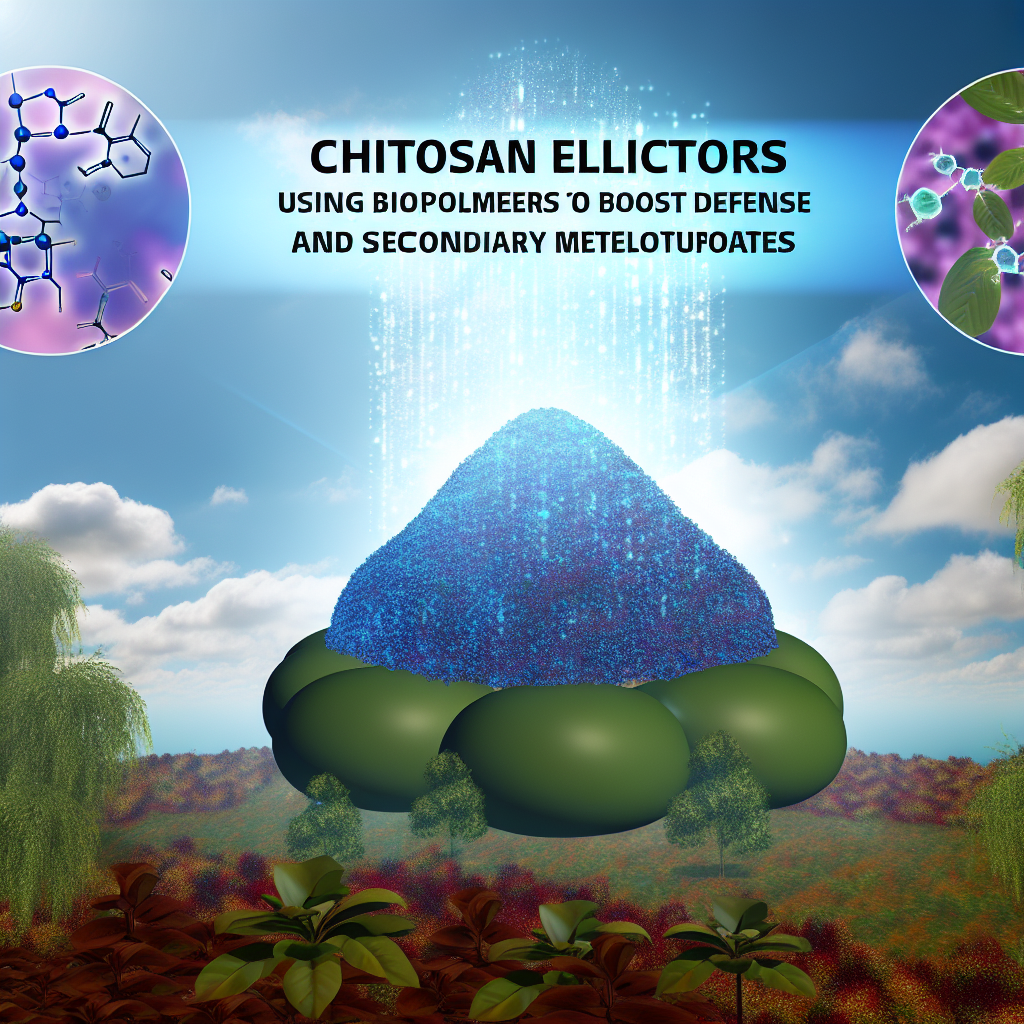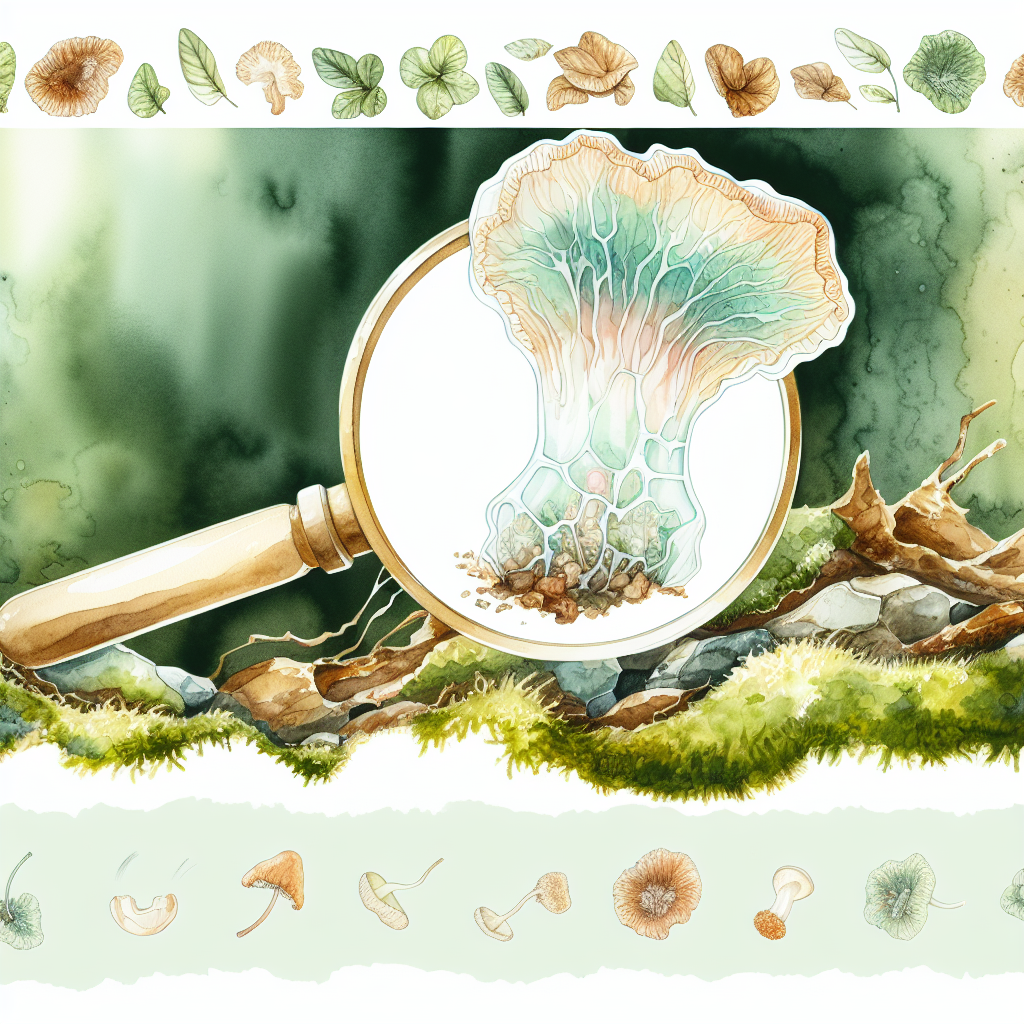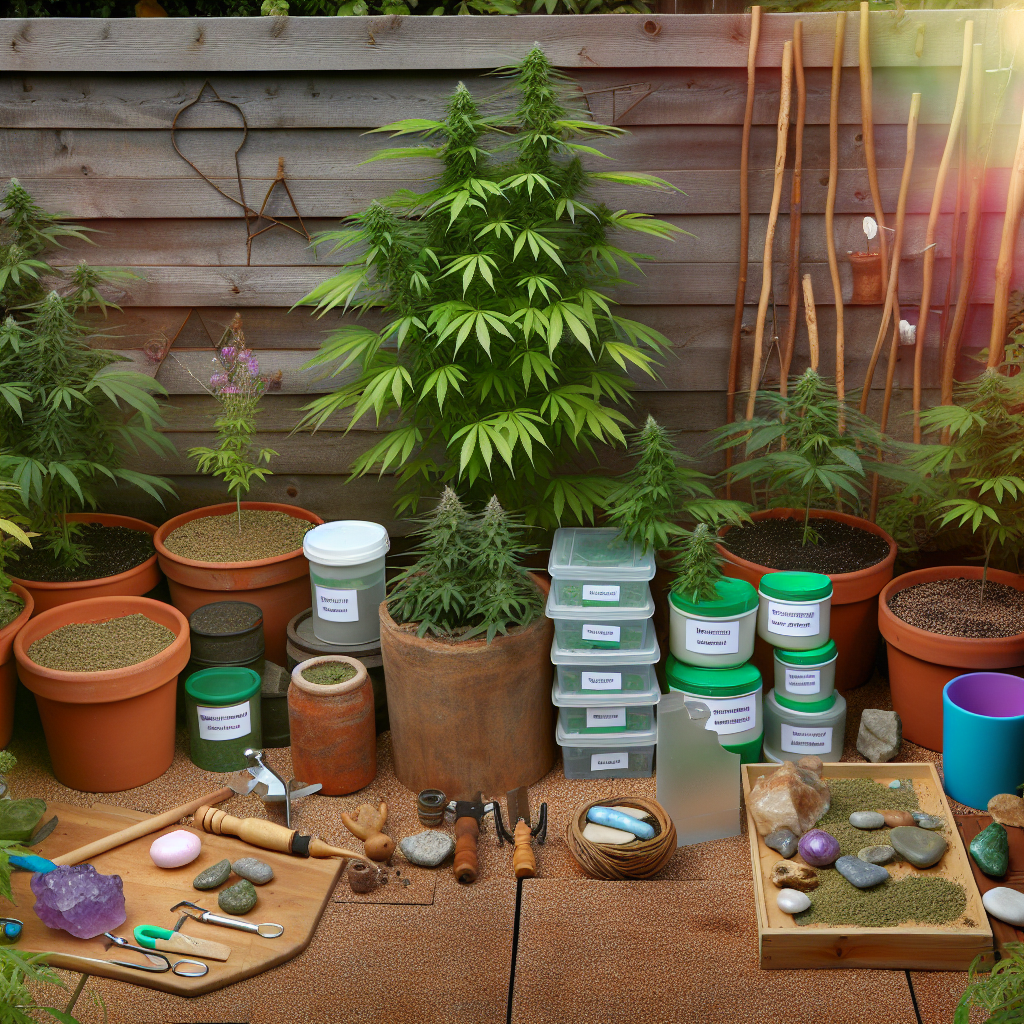Chitosan Elicitors – Using Biopolymers to Boost Plant Defense and Secondary Metabolites
Introduction
In the rapidly evolving world of cannabis cultivation, one concept steadily gaining momentum is the use of natural plant elicitors to stimulate plant health, resilience, and biochemical potency. Among these, chitosan—a biopolymer derived from chitin found in crustacean shells and fungal cell walls—has emerged as a promising, sustainable solution for boosting plant defenses and triggering the production of valuable secondary metabolites.
A key objective in both traditional and medical cannabis cultivation is to maximize productivity without compromising plant health or introducing harmful chemicals. As the demand for organic cannabis increases globally, growers seek non-toxic and eco-friendly alternatives to synthetic compounds. Chitosan fits the bill, demonstrating benefits ranging from pest resistance to the enhancement of cannabinoids and terpenes—the key bioactive constituents in cannabis.
Functioning as a plant defense elicitor, chitosan mimics pathogen attacks without causing actual harm. It activates the plant’s innate immunity, leading to responses such as cell wall reinforcement, antimicrobial enzyme production, and upsurges in the creation of secondary metabolites like flavonoids, phenolics, and volatile terpenoids. For cannabis, this may translate into stronger resistance and higher concentrations of THC, CBD, and aromatic terpenes.
Secondary metabolites aren’t just vital for plant defense—they are the molecules behind cannabis’s therapeutic and psychoactive effects. By boosting their natural production, chitosan becomes an attractive tool for cultivators eager to enhance potency while maintaining clean-label cultivation protocols.
Chitosan can be integrated through multiple methods—foliar spraying, seed coating, root drenching, or soil amendment—making it versatile and scalable across different cultivation models. Whether in a commercial greenhouse or boutique indoor grow, chitosan offers improved plant fortitude and elevated product quality.
Features and Supporting Studies
The effects of chitosan in horticulture and its specific benefits in cannabis production are supported by a growing body of peer-reviewed research. These investigations span the fields of plant biology, agronomy, and phytochemistry.
Chitosan triggers the expression of pathogen-related (PR) proteins, key agents in a plant’s innate immune system. A study published in Plant Physiology and Biochemistry revealed that chitosan increased the enzymatic activity of crucial defense markers like peroxidase (POD), polyphenol oxidase (PPO), and superoxide dismutase (SOD)—all essential for disease resistance, oxidative stress mitigation, and cellular repair.
In a 2019 article in Industrial Crops and Products, chitosan was applied to aromatic and medicinal plants, resulting in a notable increase in essential oil production and terpene concentration. These enhancements are particularly impactful for cannabis, where terpene profiles affect both flavor and therapeutic efficacy.
Specifically regarding cannabis, research in the Journal of Natural Fibers documented the application of foliar chitosan on Cannabis sativa, which led to elevated phytochemical production. Although this study focused on hemp for fiber and seed oil, the findings have significant implications for resinous cannabis varieties grown for cannabinoids and terpenes.
On a molecular level, chitosan appears to interact with hormonal signaling pathways such as jasmonic acid and salicylic acid. These hormones are central to stress response and defense regulation in plants. Their activation by chitosan may also lead to increased trichome density—the structures where cannabinoids and terpenes are synthesized.
Cannabis cultivators integrating chitosan into Integrated Pest Management (IPM) systems benefit from its compliance with organic certification standards. As a biodegradable and non-toxic input, it reduces reliance on synthetic pesticides while potentially enhancing both yield and product consistency.
Additionally, chitosan supports the circular economy. Being sourced from waste materials—like shrimp shells or fungal biomass—it repurposes what would otherwise be discarded into a high-value agricultural input. This not only reduces environmental waste but also adds ecological value to agricultural production chains.
Conclusion
Chitosan elicitors offer a science-based and environmentally aligned tool for cannabis cultivators aiming to strengthen plant immunity, boost quality, and maintain sustainability. It offers a non-toxic, organically certifiable means to stimulate the natural production of THC, CBD, and terpenes—compounds that drive the cannabis plant’s value in both medical and recreational markets.
By enhancing hormonal signaling, increasing trichome production, and improving the defense system, chitosan fosters stronger, more resilient cannabis plants. As consumer preferences shift toward clean, traceable cultivation practices, integrating chitosan into cannabis growing protocols offers a multi-faceted advantage—from agronomy to sustainability to end-user appeal.
Concise Summary
Chitosan, a natural biopolymer derived from chitin, acts as a plant elicitor boosting the immune response and increasing secondary metabolite production in cannabis. Used in foliar sprays or soil amendments, it enhances production of cannabinoids like THC and CBD and valuable terpenes, all while supporting organic cultivation standards. Supported by studies across botany and plant chemistry, chitosan activates defense enzymes and hormonal pathways linked to trichome and resin enhancement. It also supports sustainable agriculture by repurposing seafood waste, offering cleaner options for pest management and contributing to the circular economy of clean cannabis cultivation.
References
1. Plant Defense Responses Induced by Chitosan Treatment – ScienceDirect
2. Effects of Chitosan on Essential Oil Yield and Composition – ScienceDirect
3. Influence of Chitosan on Phytochemical Production in Cannabis Sativa – Taylor & Francis Online
4. The Role of Jasmonic Acid in Chitosan-Induced Plant Immunity – Frontiers in Plant Science
5. Chitosan: A Natural Elicitor for Enhanced Secondary Metabolites Biosynthesis – MDPI Molecules




